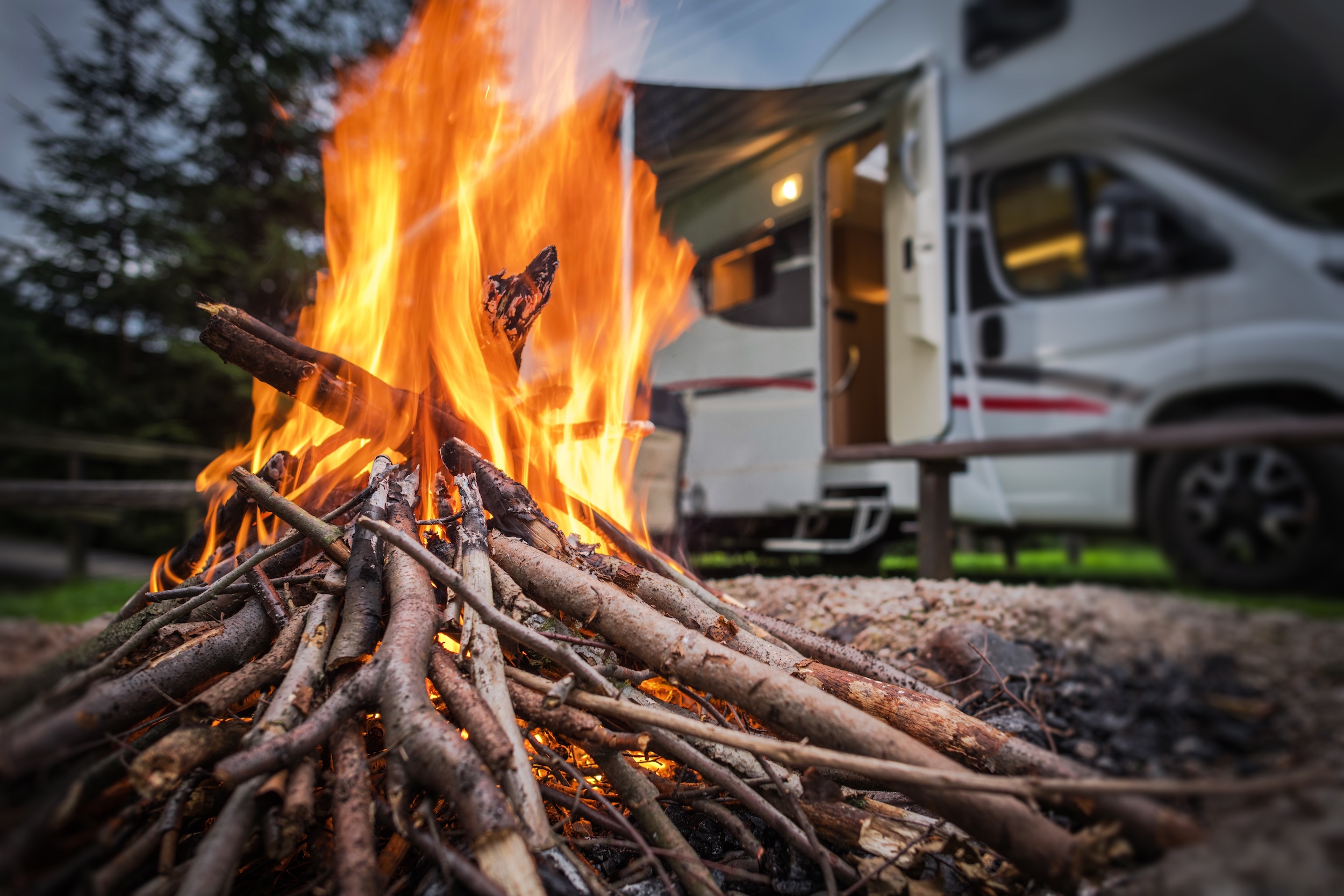Is your RV ready for the camping season?
We are less than a month away from many campgrounds to start opening up again for the camping season but are you and your camper ready?
Spring is generally the time of year where you can prepare your RV without worrying if a freeze is going to come and ruin anything.
If you have stored your rig all through the winter months, now is the time for the annual maintenance and systemized checks. You probably took steps to winterize and prepare your camper for storage. So let’s reverse that process and gear up for you to use it.
I have prepared a basic checklist to help you prepare for the camping season.
The Basic Checklist
(Here is a printable checklist created just for you)
RV Batteries
A great place to start is to check your RV batteries. Batteries lose up to 10% of their energy per month when they are in storage and not being used. If you moved the batteries for storage, then make sure they are reconnected correctly. It is important to make sure they are fully charged and have the correct water levels. Check the battery manual to determine what that is.
RV Water Tanks
Most people winterize their water tanks before putting their RV in storage, or they blew out the water lines (which is what I highly recommend-the antifreeze stays in your water lines and gives the water and camper a bad smell and taste for several uses before it is almost gone.) Start by de-winterizing your lines and then check for any leaks that may have occurred. Finally, finish up with sanitizing as well. Again, I would not recommend using bleach to sanitize your water lines as that is a harmful chemical that remains for several uses. Instead, I recommend using vinegar as it is non-toxic.
Check Appliances
Many RVs use propane, also called LP gas, for their hot water, fridge, and stove. It is very important to check the tanks (they do have an expiration date and need to be re-certified for safety). Also check the connections, the valve, and the firing operation. If something doesn’t seem to be working, you can have it checked out by a professional. It is always a good idea to perform a leak test and pressure test every year as well.
Once you have dealt with your propane, it is a good idea to see if the microwave, air conditioner, fridge, and any other electric appliances are also functioning properly. Do this by plugging into a solid source of 30-AMP power.
Check the Tires
RV tires are very prone to a blow out so check those tires to prevent this from happening. Many RVers will pull their rig off the lot and into the first tire shop they see and have them completely changed to a better tire. Either way, you must check your tires to be sure they are ready to hit the road.
Start by checking the air pressure as they tend to lose pressure while sitting in storage. Check the manual to determine the recommended PSI. Inspect the tire for tread wear and any cracking, especially on the sidewalls, that may be occurring.
Check Seams
This is one of those tasks that most people forget to check, but it is very important. Seams should be checked at least twice a year. It is a mistake you don’t want to make as every seam is where a leak starts. Prevent leaks by checking and resealing around your windows, roof, doors, and slides. Look for any openings, cracks, or signs of damage and use an RV-compatible sealant to repair.
Check Your Safety Equipment
Now is a great time to check your smoke detector, carbon monoxide detector, LP gas leak detector, and fire extinguisher. Check your lights and their connections between the RV and your vehicle. Check and make sure your insurance and registration are current. And if you have a generator, now would be the time to make sure it is working properly. I would also suggest you check the hydraulic fluid on your camper that helps run the auto-leveling system (if your camper has one).
You Are Now Ready for the Camping Season
Although every camper is different, these 6 steps will have you prepared and ready for the camping season. Use them to tailor to your specific unit. Be sure to take your time and inspect your entire RV and hire out any work that you are unable to do yourself.
Many campers still use RV Skirting to help keep the unit cool in the summer and lower the costs of utilities. RV Skirting can also be used for extra storage.
Read here how to Best Protect Your RV From the Summer Elements
Best Practices to Protect Your RV From the Summer Elements
And don’t forget to spring clean the inside of your camper to help freshen it up!
